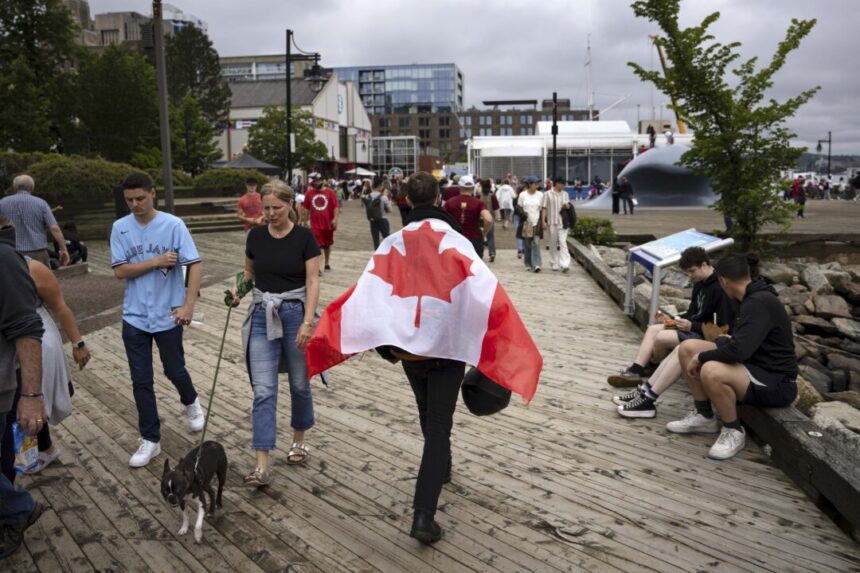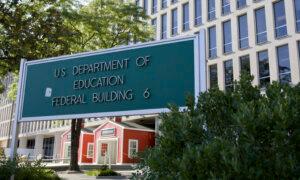Commentary
Cities have long been the crucibles of civic life, where individuals from diverse backgrounds come together under a shared framework of social norms and mutual understanding. It is in urban settings that the civic virtues of trust, cooperation, and public engagement are most needed, and where they have traditionally flourished.
Jane Jacobs, the great urban theorist, understood this well, arguing that the vitality of cities depends on the organic interactions of their inhabitants. For Jacobs, the intricate web of daily encounters—what she called the “sidewalk ballet”—is the lifeblood of a thriving civic culture, fostering the trust and cooperation that sustain urban communities, and, by extension a healthy society.
Yet, in Canada today, there is a growing disquiet in our cities, a fraying of the social fabric and an erosion of trust. The tacit bonds of mutual regard that once held communities together are loosening, replaced by an unsettling atmosphere of uncertainty and disorder. The rising tide of violent crime in Canada’s cities has cast a shadow over daily life, eroding the sense of safety and security that citizens once took for granted.
For instance, in downtown Kelowna, a woman taking her dog for an early morning walk found herself the target of a machete-wielding assailant—an attack as senseless as it was alarming. Thankfully, she emerged unharmed; yet the episode serves as a chilling sign of the shifting realities of urban life, where the unspoken assurances of safety and order can no longer be taken for granted.
Tragically, stories of senseless and brutal attacks have become a grim fixture of our daily news, each one a stark reminder of our fraying social fabric.
This phenomenon is far from unique to Canada; rather, it is part of a broader global current—a disquieting shift that transcends national borders and signals a deeper unravelling of social cohesion across the Western world.
At its core lies a profound philosophical reckoning, one that challenges the very notion of nationhood and belonging. It reflects a growing uncertainty over whether a shared national ethos remains an essential foundation for public life or merely an outdated construct in an era increasingly defined by transnational ideals and fluid identities.
Nowhere is this more apparent than in the assertion, made in 2015 by Justin Trudeau, that Canada possesses “no core identity.” At first glance, this declaration might seem to signal an open-minded embrace of pluralism, a rejection of rigid or exclusionary conceptions of nation and national belonging. Yet it also raises a more troubling question: can a nation sustain itself without a sense of common purpose?
The challenges posed by mass immigration—now at record levels, with over 500,000 newcomers annually—strains existing institutions, exacerbates economic pressures, and, in the absence of a coherent approach to integration, risks fostering enclaves of disconnection rather than a unified polity.
The consequences are visible in Canada’s major cities, where housing affordability has reached crisis levels, wages remain stagnant and public services struggle to keep pace with demand. It is here that the claim of “no core identity” has its most tangible effects. Without a national ethos to guide integration, diversity can become a source of fragmentation rather than enrichment.
The notion that Canada—or any society—can endure indefinitely as a mere assemblage of disparate groups, a patchwork of individuals and communities coexisting in shared space yet bound by little more than proximity, stands in stark contrast to the historical experience of successful democracies. Thriving nations have always depended on a unifying sense of collective purpose, a recognition that citizenship entails not only rights but shared responsibilities.
The late Christopher Lasch warned of this dynamic in “The Revolt of the Elites,” where he described how a managerial class, detached from the everyday realities of working people, increasingly views national identity as an impediment rather than an asset.
In Canada, this perspective is evident in policies that emphasize globalism and economic growth over social cohesion, treating migration primarily as a means to satisfy labour shortages rather than as a process requiring careful stewardship. While the rhetoric of multiculturalism remains ascendant, there is less recognition that successful pluralism depends on fostering a sense of belonging to a shared political and cultural community.
This is not a question of rejecting diversity but of recognizing the conditions necessary for its success. A nation is not merely an administrative entity; it is a tapestry of traditions, values, and institutions that provide individuals with a sense of place and purpose. If these common threads are dismissed as irrelevant or anachronistic, what remains to hold society together? In a democracy, political legitimacy depends not only on laws and institutions but on the tacit understandings that enable people to trust one another as fellow citizens.
It is worth considering what happens in the absence of such trust. In cities where integration falters and economic pressures mount, resentment grows—not only among those who feel left behind but also among those who, having newly arrived, find themselves without a clear path to full participation in civic life. In such a landscape, political polarization intensifies, a trend observable across many Western democracies. Yet in Canada, the situation is made more precarious by Trudeau’s explicit rejection of a unifying national narrative.
The question, then, is whether it is possible to sustain a democratic society without a sense of common identity. Liberal democracies rely on more than just procedural rules; it depends on a citizenry that shares certain foundational commitments—commitments that shape how individuals relate to one another and to the institutions that govern them. When political leaders declare that no such commitments exist, or that they are unnecessary in a post-national world, they risk undermining the very basis of democratic solidarity.
This is not to say that national identity must be static or exclusionary. Identities evolve, and the challenge for any society is to strike a balance between continuity and change. However, change that is unmoored from any sense of historical continuity leaves individuals adrift, unsure of their place in the larger whole. Without a guiding ethos, pluralism risks becoming atomization, and cities—once sites of vibrant civic engagement—may instead become arenas of competition and distrust.
A return to a more cohesive vision of national identity does not require a rejection of diversity. Rather, it demands an acknowldgment that successful pluralism depends on shared institutions, common civic values, and a political culture that fosters belonging.
If Canada is to navigate the challenges of the 21st century, it must move beyond the Trudeauian notion that identity is irrelevant or dispensable. A nation cannot function as a mere economic zone; it must also provide its citizens with a sense of meaning and mutual obligation. To abandon this task is not to embrace progress but to invite fragmentation.
The path forward lies not in retreating to an illusory past but in reaffirming the principles that have historically enabled democratic societies to thrive: a commitment to civic engagement, a respect for tradition tempered by openness to change, and a recognition that national identity, far from being a barrier to inclusion, is the foundation upon which a stable and prosperous society is built.
Views expressed in this article are opinions of the author and do not necessarily reflect the views of The Epoch Times.












